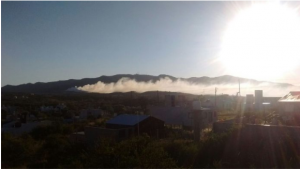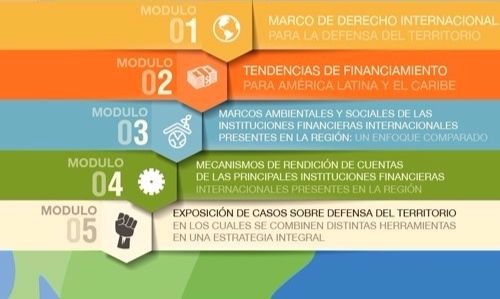The works of the Environmental Center of Villa Carlos Paz show an advance of 90% and estimate that in 30 days it will be in operation. Meanwhile, the concern of the residents of Malagueño continues asking for concrete measures to make effective the differentiated collection of waste as well as awareness campaigns.
“Below, we offer a google translate version of the original article in Spanish. This translation may not be accurate but serves as a general presentation of the article. For more accurate information, please switch to the Spanish version of the website. In addition, feel free to directly contact in English the person mentioned at the bottom of this article with regards to this topic”.
The project “Environmental Center of Villa Carlos Paz” is being developed in a municipal area located near the National Route 20, which links it with the city of Córdoba, where the current open-air dump is currently operating. It will process the garbage of more than 100.00 inhabitants of the region that includes Villa Carlos Paz and neighboring localities (Villa Rio Icho Cruz, Mayu Sumaj, Cuesta Blanca, Tala Huasi, Cabalango and Malagueño).
In Centro Ambiental, it is integrated by three works: a sanitary landfill for the disposal of solid urban waste, a separation and treatment plant for leachates (toxic residual waste liquid) and the closure of the existing open-air dump for more than 50 years. years.
The works with a total investment of 188,403,896 pesos are being financed through the Environmental Management Program of Tourist Municipalities, executed by the Ministry of Tourism of the Nation with funds from the IDB (Inter-American Development Bank) and the National State.
The construction of the Environmental Center began in mid-2017 and according to Horacio Pedrone, Secretary of Environmental Urban Development of the Municipality of Carlos Paz: “We think that by the second half of this year, we will have the new Environmental Treatment Center in operation of urban solid waste “.

While the works are advancing rapidly and the authorities of Carlos Paz announce that at the end of August the differentiated waste collection will begin in the city, in charge of the company Cotreco, in Malagueño there is uncertainty and concern.
In this regard, it is stated that although the Municipality of Carlos Paz has announced communication and awareness campaigns to the community on how to proceed when separating and collecting garbage, no concrete measures have yet been observed. The Malagueño authorities for their part say nothing about it, and taking into account that the Environmental Center will be inaugurated soon, the residents of Villa San Nicolás (Malagueño) fear that the place will become a new landfill.
The project foresees that once the construction of the Environmental Center is completed, the definitive closure of the existing open-air dump would begin, solving a problem that takes 58 years. Until recently, even the fire sources in the same one continued, affecting the smoke and the toxic gases emanating from the landfill to the San Nicolás neighborhood and other neighborhoods near the highway.
In addition, during the last months of December and January, the landfill was burning for more than 80 days, and therefore self-appointed neighbors organized protests calling for an environmental emergency to be declared as a result of the toxicity generated by the smoke from the burning garbage.

In short, the environmental damage affects the air that neighbors breathe, and due to the rains – which increase during the summer and tourist seasons – the ashes end in the San Roque dam that supplies water to 70% of the city of Córdoba.
From FUNDEPS we follow this process and accompany the community of Villa San Nicolás to ensure respect for their rights to a healthy environment, health and access to information and citizen participation. Likewise, and as we have been saying for some time, we consider questionable the location of the Environmental Center next to the La Calera Defense Nature Reserve, and meters from San Roque Lake in areas that may have a higher filtration or percolation propensity towards the Napa of water.
More information
http://www.eldiariodecarlospaz.com.ar/sociedad/2018/6/14/en-agosto-comenzaria-la-recoleccion-diferenciada-de-residuos-52986.html
http://www.eldiariodecarlospaz.com.ar/sociedad/2018/5/15/asi-es-el-centro-ambiental-donde-se-procesara-la-basura-de-punilla-51764.html
https://lmdiario.com.ar/noticia/43262/malagueno-denuncian-problemas-respiratorios-por-los-incendios-del-basural
Contact
María Pérez Alsina – mariaperezalsina@fundeps.org
Gonzalo Roza – gon.roza@fundeps.org




